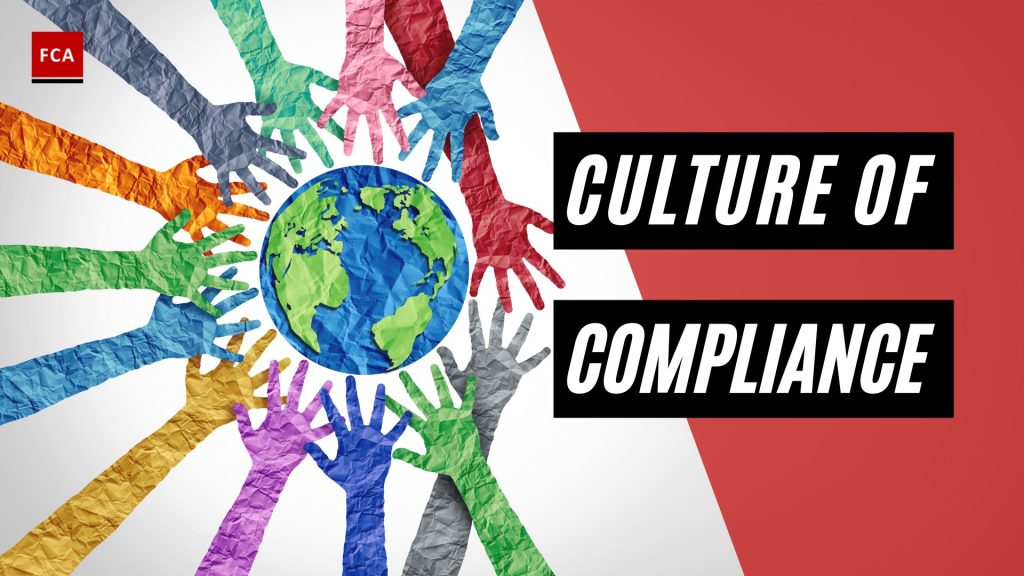A culture of compliance means that the organization’s Board of Directors, Management, and employees are committed to ensuring that all applicable regulatory requirements shall be complied with in letter and spirit.
The tone at the top from the board is a way of expressing ethical values pursued in the organization and providing guidance to employees, which is the most important factor in shaping and predicting ethical behavior and ensuring corporate compliance.

The Culture of Compliance
Compliance culture is the shared attitudes, values, goals, and practices that characterize an institution or organization. It is the extent to which an organization regards its values. Strong ethical cultures make doing what is right a priority. Ethical culture is often an unwritten code by which employees learn what they should think and do. When aligned with values, drives, and needs, culture can unleash tremendous energy toward a shared purpose and foster an organization’s capacity to thrive.
The corporate compliance culture can be presented as an overlapping diagram of the following items. Some of today’s best organizations promote ethics and culture as a critical part of their corporate branding and values. Even when no one is watching, doing the right thing is profitable, which is called the “ethical premium.” Several studies have examined the correlation between organizational justness and performance, and the results show that those organizations with morals and ethics often outperform their competitors.
The following are some of the business benefits of culture that organizations may enjoy:
- Increased reputation and positive public image
- More stable and consistent reaction to ever-changing rules/laws
- Social media regulations
- Effective recruitment and reduced turnover
- Less disruptive workplace.
Creating an integrity culture begins with tone at the top, but it must include mood in the middle and buzz at the bottom. Culture is defined as what people perceive to be recognized and rewarded. Employees’ supervisors may be the face of culture. As a result, senior leadership should serve as both a driver and a critical contributor to corporate culture.
The proper tone from the top is vital. Still, it will dissipate fast unless there is a genuine and ongoing commitment from the board and senior leadership, including the chief compliance officer and the chief audit executive, to send the right message using various media and build relationships throughout the organization one at a time.
Managers at all levels must set the right compliance culture by setting a tone to demonstrate their commitment to honesty, ethical strength, dependability, and fairness through their actions. Management cannot act without these characteristics and expect others to behave differently and comply with laws and regulations.

Management must communicate its ethics and values clearly throughout the area they manage. These values could be communicated formally through written codes of conduct and policies, staff meetings, memos, etc., or informally during the day-to-day operations.
A manager can be a leader, but a manager is not always a leader. The workgroup leader may emerge informally as the group’s choice. The manager demonstrates leadership if a manager can persuade others to work toward the organization’s goals without using formal authority.
In general, management or employees may behave in a non-compliant manner for various reasons;
- non-compliant behavior without specific intention,
- non-compliant behavior to benefit the organization, and
- non-compliant behavior to benefit oneself.
To prevent the employees’ non-compliant behavior, the board and management take appropriate measures in the form of direction, supervision, and defining policies and procedures so that all employees understand their work requirements and ensure regulatory compliance.
Final Thoughts
A compliance culture begins with an organization that is true to its mission and core values, with senior management leading the way by expressing their commitment to compliance policies and encouraging open communication and honest feedback.








